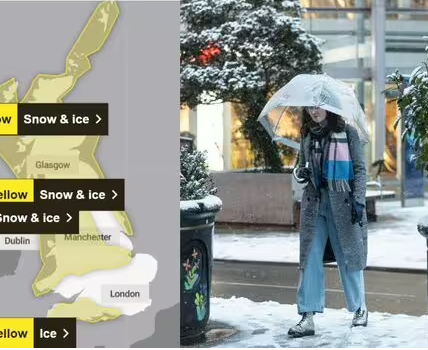8.3 million more individuals will be affected by “fiscal drag” as their wages increase. Some describe this as a “stealth tax”.

Millions more will be dragged into paying up more, experts predict (Image: Getty)
More than eight million people are to be dragged into or forced higher up to higher tax thresholds over the next five years because successive governments have frozen the ladder, experts say. The Office for Budget Responsibility (OBR) predicted that when the Chancellor, Rachel Reeves, presented her Spring Statement in March, by the 2029-30 financial year, 8.3 million more individuals would be affected by “fiscal drag” as their wages increase. Some describe this as a “stealth tax”.
March projections also suggested, however, that real household disposable income (RHDI) per person will grow at about 0.5% on average each year between 2025 and 2030. Stronger wage growth means this is higher than the previous forecast, which was published in October alongside Ms Reeves’ Budget. RHDI measures how much spending power people have from their income and savings, taking into account the effect of inflation. But the Chancellor has said that the Income Tax threshold freeze will be lifted in 2028/29.
READ MORE: DVLA hits millions with new £650 driver tax – check if you are exempt [REPORT]

People are set to be affected by ‘fiscal drag’ (Image: Getty)
Current Income Tax bands
| Band | Taxable income | Tax rate |
|---|---|---|
| Personal Allowance | Up to £12,570 | 0% |
| Basic rate | £12,571 to £50,270 | 20% |
| Higher rate | £50,271 to £125,140 | 40% |
| Additional rate | over £125,140 | 45% |
The Chancellor said in the spring that working people were “still feeling the pinch” after the cost-of-living crisis, but the new projections show “living standards will rise twice as fast this Parliament compared to last”.
However, the OBR warned that disposable income growth will vary significantly around the five-year average. It is set to drop sharply from about 2.5% in 2024-25 to almost zero growth in 2027-28.
Experts said this will be driven by several factors, including lower wage growth as firms rebuild their profit margins.
Wages will also be hit by businesses passing on higher employer national insurance contributions to staff, and “fiscal drag” will take hold.
READ MORE:
‘Tweak’ to mortgage ‘could save £15,000 interest and pay it off early’ [INSIGHT]
UK drivers face £9,000 bombshell amid surge in car prices [REPORT]
Instantly boost your credit score with one easy change says Experian [REPORT]

Taxpayers will be paying tax at high thresholds to the Treasury (Image: Getty)
The Treasury told The Times: “This government inherited the previous government’s policy of frozen tax thresholds. At the budget and the spring statement, the chancellor announced that we would not extend that freeze.
“We are also protecting payslips for working people by keeping our promise to not raise the basic, higher or additional rates of income tax, employee national insurance or VAT.
“That’s the ‘Plan for Change’, protecting people’s incomes and putting money into people’s pockets.”







Most Popular Comments